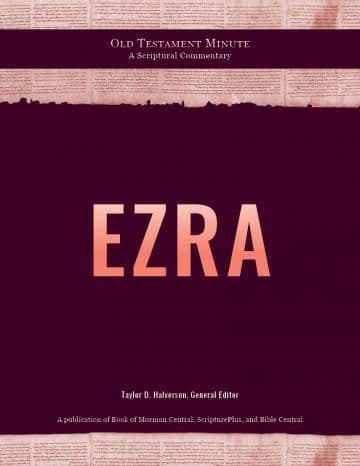Book
10 Chapters

This chapter outlines the return of Ezra and a large group of people from Babylon to Jerusalem. Besides spiritually preparing themselves for the temple through fasting, the returnees physically carried with them the offerings and vessels delivered to the temple. They safely arrived in Jerusalem, offered sacrifices to purify themselves, and delivered the king’s decree to the local officials.
Chapter 8 provides another lengthy genealogical list of those returning with Ezra to Jerusalem. Besides specific names of various priests, this list includes numbers of males registered within the Israelite clans who either remained in Babylon or returned to Jerusalem.
Verse 15 continues the narrative from the end of chapter 7, when the leading men of Israel were assembled. Ezra personally reviewed the assembled people that had camped by the river. He found no Levites there, so he sent messengers to other locations to bring temple attendants.
Verse 20 may be the result of this search, as it provides the sum of 220 Nethinim, or temple servants. First Chronicles 9:2 uses the same term and seems to identify the group with priests, Levites, and other temple personnel.
Ezra asked those accompanying him to fast for God’s protection during their journey. The phrase “right way” (or smooth journey) in verse 21 appears in many other exilic texts that describe the return to Judah.
Fasting to intensify one’s petitions to God, particularly before beginning new undertakings, was common throughout scriptural history. Jesus fasted before beginning His formal ministry. We likewise can draw great strength from fasting with specific purposes in mind.
Ezra distributed contributions made to the house of God among twelve of the chief priests. Besides listing the amounts of the various contributions, the text also includes Ezra’s plea to guard these consecrated offerings, reminding the priests that they themselves are consecrated to the Lord. Verse 28 translates the Hebrew word kadosh to signify something that is set apart or consecrated for the Lord. People and objects can be considered holy or set apart.
Careful stewardship of offerings made to the Lord is a constant requirement among God’s people and is a way for us today to show love and respect for Heavenly Father.
A brief summary is given of Ezra and the group’s trip to Jerusalem. Apparently, some unexplained ambush occurred along the way, but God delivered the group from it.
Shortly after their arrival to Jerusalem, the people delivered and recorded the offerings to the temple priests and Levites. They also sacrificed burnt offerings of bulls, rams, lambs, and he-goats as purification offerings.
The king’s orders were delivered to the satraps and governors of the land to ensure obedience to the royal decree. The phrase “on this side the river” is another way of identifying the province of “Beyond the River,” meaning “beyond the Euphrates.”
Items in the BMC Archive are made publicly available for non-commercial, private use. Inclusion within the BMC Archive does not imply endorsement. Items do not represent the official views of The Church of Jesus Christ of Latter-day Saints or of Book of Mormon Central.